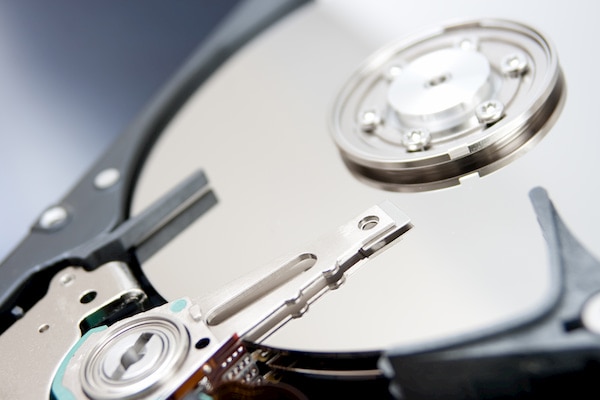Data breach security is one of the most overlooked parts of corporate IT. Time and again, we hear about large data breaches like hotel giant Marriott losing customer data and lawsuits in the millions to even tens of billions of dollars. In a post-coronavirus world, remote work may provide new opportunities to expose your business to data breaches like these.
Who is the most likely to be affected by these breaches? How do you go about securing this new type of data breach prevention? Data destruction services and procedures such as ITAD have the answer.
If You Handle Sensitive Customer Information, You’re At Risk
Bank records, credit card numbers, addresses, social security numbers and more are critical to keep safe from theft, hacking, or simple forgetfulness. Most if not all businesses have some amount of data security risk that comes with base operations.

In particular, businesses in the medical industry and hospitality industry are at high risk, although for different reasons.
HIPAA and Medical Responsibility
HIPAA stands for the Health Insurance Portability and Accountability Act of 1996. In this act, Congress designated certain security laws and measures for the handling of digital and physical files when concerning patient records. While the act helps protect our medical data, thousands of companies have been fined and sued over loss of medical information over the years.
According to the HIPAA Journal, the average data breach cost in the medical industry reached a staggering $3.92 million dollars in 2019. Further, they measured that for each record lost or stolen, those businesses implicated paid over $427 dollars on average.
The Effects Felt In The Hospitality Industry
Due to the nature of the business, hotels, spas, and other sensational destination businesses often have a low security budget. The resulting lack of data breach prevention has led to companies like Mariott to have massive multiple data breaches over the years.

Data Breach Today reported just how bad the company has had it. In 2019, a judge ruled to combine eleven class-action lawsuits into one in the US alone. With pending lawsuits in the UK, the US, Canada, England, and Wales, Marriott is not alone.
Many hotel chains and rental service companies have fallen into the same trap with an extreme lack in data breach security: hardware.
Where Does This Data Loss Come From?
Often, businesses and IT departments are quick to prevent online hacking methods. Everything from email phishing to Distributed Denial of Service (DDoS) attacks are combed over and security measures are put in place to prevent these remote attacks.
However, this is often not where these data leaks come from. In a cruel twist of fate, it’s often a lost flash drive or other physical hardware that does it. Heathrow airport fell under fire back in 2018 due to a single flash drive. This data liability problem has led some companies to create programs just for making sure that every device is accounted for and destroyed if not in use.
The Rise in Remote Worker Risks
Generally, the option for remote work benefits both the businesses and the employees involved. However, laptops, external drives, flash drives, and client portals are all risks extended by the rise in remote workers.
While many have had the choice of filing chapter 11 or going remote since the coronavirus outbreak in early 2020, many have started to see the financial benefits in continuing to do so.

However, these new dangers associated with working from home should have more companies worried. Luckily, there are a number of data breach prevention methods and services such as data destruction to help. There’s even a way for your IT and tech employees to accomplish this, called ITAD.
What is ITAD?
ITAD stands for Information Technology Asset Disposition. The term refers to the practice of managing and disposing IT assets such as smartphones, tablets, flash drives, and computers in a safe and affordable manner.
While not all businesses may need a permanent data destruction service to make sure their old computers are safe from tech-smart dumpster diver, upgrading the office or experiencing rapid growth are easy ways to lose devices filled with sensitive information. The best way to prevent that is to use a system or service with certified data disposal methods. That way you have some form of protection going into court if you’re ever unlucky enough to find yourself there.
Great Lakes Electronics Corporation
As an electronics recycling company, GLEC can help secure your data breach security with our data destruction services. Not only can you get rid of the old hardware unfit for your office and employees, but we provide certificates of authentication for the destruction of your hardware.
If you need help getting started, feel free to give us a call at 888-392-7831 and we’ll give you a hand. If you’re phone-shy, you can always read our guide on business electronics recycling while we wait for you to fill out our contact form.

